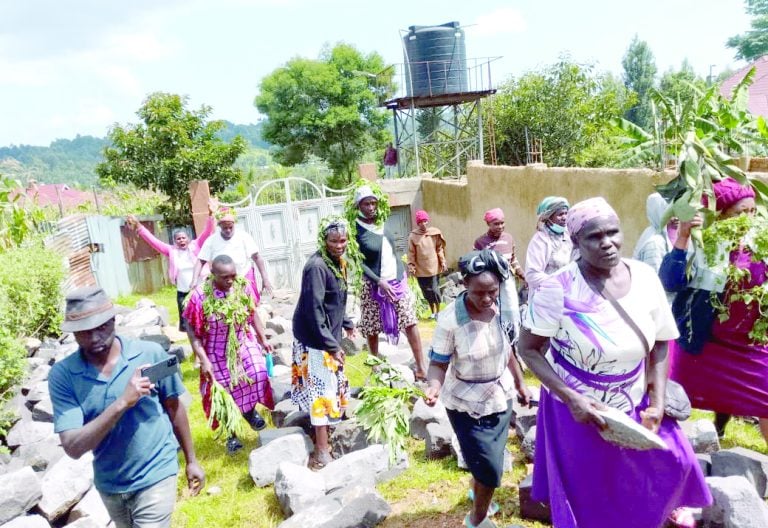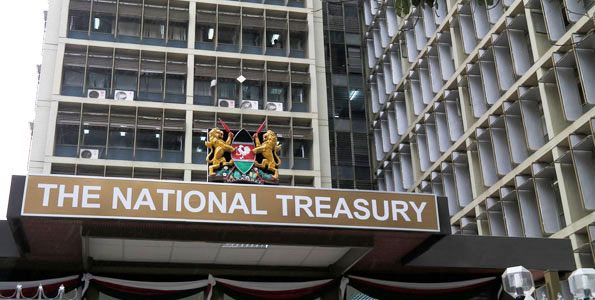Top offices eye Sh17b as taxes hit ‘hustlers’
By Noel.Wandera, June 15, 2023Kenya Kwanza’s ambitious Sh3.67 trillion maiden budget for the financial year 2023/24 will see taxpayers cough Sh16.6 billion to keep the top three offices in the land running.
National Treasury Cabinet Secretary Njuguna Ndung’u is expected to present the budget today at a time the country is undergoing tough economic times.
The funds which are an increase from past expenditures will see State House and the Office of the President getting a combined Sh11.6 billion while that of the Deputy President and Prime Cabinet Secretary will get Sh3.8 billion and Sh1.2 billion respectively.
Having campaigned using the “hustler” moniker, and having promised to cut costs and adhere to austerity measures, the budget may be seen as a contradiction which mocks the common man who is suffering from high cost of living.
However, in May this year, President William Ruto defended the increased allocations, saying it would cater for the operations of State House and his deputy’s office. Ruto said he did not want his deputy to experience what he went through when he was deputy president.
Revised budget
“The operations of the office of the Deputy President had been shut and if you have to reinstate its operations, we have to increase the funds,” he said.
In the revised budget estimates tabled in Parliament, the Kiharu MP Ndindi Nyoro-led Budget and Appropriations Committee allocated State House Sh7.3 billion while the office of the President got Sh4.3 billion.
Most of the money for the top three offices is spent on hospitality, foreign and internal trips, and fleet maintenance including fuel and lubricants while discharging government functions.
In executive order No.1 of 2022, Ruto created five new positions in his office, including that of the Council of Economic Advisors, Council of Climate Change Advisor, the Office of Fiscal Affairs and Budget Policy, the Office of Economic Transformation and Deputy Head of Presidential Communications Services, who also doubles up as Statehouse spokesman.
Last year, Ruto assigned his deputy Rigathi Gachagua the responsibilities of chairing cabinet committees, overseeing the implementation of cabinet decisions across all ministries and coordinating intergovernmental relations between the national and county governments.
On his part, the Prime Cabinet Secretary Musalia Mudavadi assists the President and Deputy in overseeing government projects and coordinating the national government policies, programmes and projects, among other responsibilities.
The increase in the budgetary allocation for the executive and deputy president’s office comes amid pressure to revise the proposed taxes and levies which critics say will overburden “mwananchi” and businesses already grappling with the high cost of living and doing business.
This, even as volatile growth, high universal subsidies, combined with adverse external developments such as recent interest rate hikes and price surges in food and fuel has put public finances under pressure in Kenya.
The Ruto administration is seeking Sh3.64 trillion to fund government programmes. In addition to cutting down on borrowing the president has also promised to increase development expenditure by a third.
In the run-up to the September General Elections, the president prioritised investment in agriculture and food Security, micro, small and medium enterprises (MSMEs) and financing, housing, access to health, ICT and the creative economy.
Boost agriculture
The president promised to invest at least Sh250 billion in five years effective this year to boost agriculture and food security by transforming two million poor farmers from food-deficit to surplus producers and raising the productivity of key-value food chains and cutting basic food imports by 30 per cent
He also promised to provide Sh50 billion annually to MSMEs with reliable access to credit and establish MSME Business Development Centre in every ward.
More Articles

